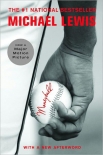Moneyball by Lewis, Michael (books to read in your 30s TXT) 📗

Book online «Moneyball by Lewis, Michael (books to read in your 30s TXT) 📗». Author Lewis, Michael
The other bad sign was that Billy kept saying he didn’t want to play pro baseball. He wanted to go to college. Specifically, he wanted to attend Stanford University on a joint baseball and football scholarship. He was at least as interested in the school as the sports. The baseball recruiter from the University of Southern California had tried to talk Billy out of Stanford. “They’ll make you take a whole week off for final exams,” he’d said. To which Billy had replied, “That’s the idea, isn’t it?” A few of the scouts had tried to point out that Billy didn’t actually play football—he’d quit after his sophomore year in high school, to avoid an injury that might end his baseball career. Stanford didn’t care. The university was in the market for a quarterback to succeed its current star, a sophomore named John Elway. The baseball team didn’t have the pull that the football team had with the Stanford admissions office, and so the baseball coach asked the football coach to have a look at Billy. A few hours on the practice field and the football coach endorsed Billy Beane as the man to take over after John Elway left. All Billy had to do was get his B in math. The Stanford athletic department would take care of the rest. And it had.
By the day of the draft every big league scout had pretty much written off Billy as unobtainable. “Billy just scared a lot of people away,” recalls scout Paul Weaver. “No one thought he was going to sign.” It was insane for a team to waste its only first-round draft choice on a kid who didn’t want to play.
The only one who refused to be scared off was Roger Jongewaard. The Mets had three first-round picks in the 1980 draft and so, Jongewaard figured, the front office might be willing to risk one of them on a player who might not sign. Plus there was this other thing. In the months leading up to the draft the Mets front office had allowed themselves to become part of a strange experiment. Sports Illustrated had asked the Mets’ general manager, Frank Cashen, if one of the magazine’s reporters could follow the team as it decided who would become the first overall draft pick in the country. The Mets had shown the magazine their short list of prospects, and the magazine had said it would be convenient, journalistically, if the team selected Darryl Strawberry.
Strawberry was just a great story: a poor kid from the inner-city of Los Angeles who didn’t know he was about to become rich and famous. Jongewaard, who preferred Billy to Strawberry, argued against letting the magazine become involved at all because, as he put it later, “we’d be creating a monster. It’d cost us a lot of money.” The club overruled him. The Mets front office felt that the benefits of the national publicity outweighed the costs of raising Darryl Strawberry’s expectations, or even of picking the wrong guy. The Mets took Strawberry with the first pick and paid him a then fantastic signing bonus of $210,000. The Blue jays took Garry Harris with the second pick of the draft. Darnell Coles went to the Mariners with the sixth pick, and Cecil Espy to the White Sox with the eighth pick. With their second first-round draft pick, the twenty-third overall, the Mets let Roger Jongewaard do what he wanted, and Jongewaard selected Billy Beane.
Jongewaard had seen kids say they were going to college only to change their minds the minute the money hit the table. But in the weeks following the draft he had laid a hundred grand in front of Billy’s parents and it had done nothing to improve the tone of the discussion. He began to worry that Billy was serious. To the chagrin of Billy’s mother, who was intent on her son going to Stanford, Jongewaard planted himself in the Beane household. That didn’t work either. “I wasn’t getting the vibes I would like,” Jongewaard now says. “And so I took Billy to see the big club.”
It was 1980. The Beane family was military middle class. Billy had hardly been outside of San Diego, much less to New York City. To him the New York Mets were not so much a baseball team as a remote idea. But that summer, when the Mets came to San Diego to play the Padres, Jongewaard escorted Billy into the visitors’ clubhouse. There Billy found waiting for him a Mets uniform with his name on the back, and a receiving party of players: Lee Mazzilli, Mookie Wilson, Wally Backman. The players knew who he was; they came up to him and joked about how they needed him to hurry up and get his ass to the big leagues. Even the Mets’ manager, Joe Torre, took an interest. “I think that’s what turned Billy,” says Jongewaard. “He met the big league team and he thought: I can play with these guys.” “It was such a sacred place,” says Billy, “and it was closed off to so many people. And I was inside. It became real.”
The decision was Billy’s to make. A year or so earlier, Billy’s father had sat him down at a table and challenged him to arm-wrestle. The gesture struck Billy as strange, unlike his father. His father was intense but never physically aggressive. Father and son wrestled: Billy won. Afterward, his father told Billy that if he was man enough to beat his father in arm-wrestling, he was man enough to make his





Comments (0)